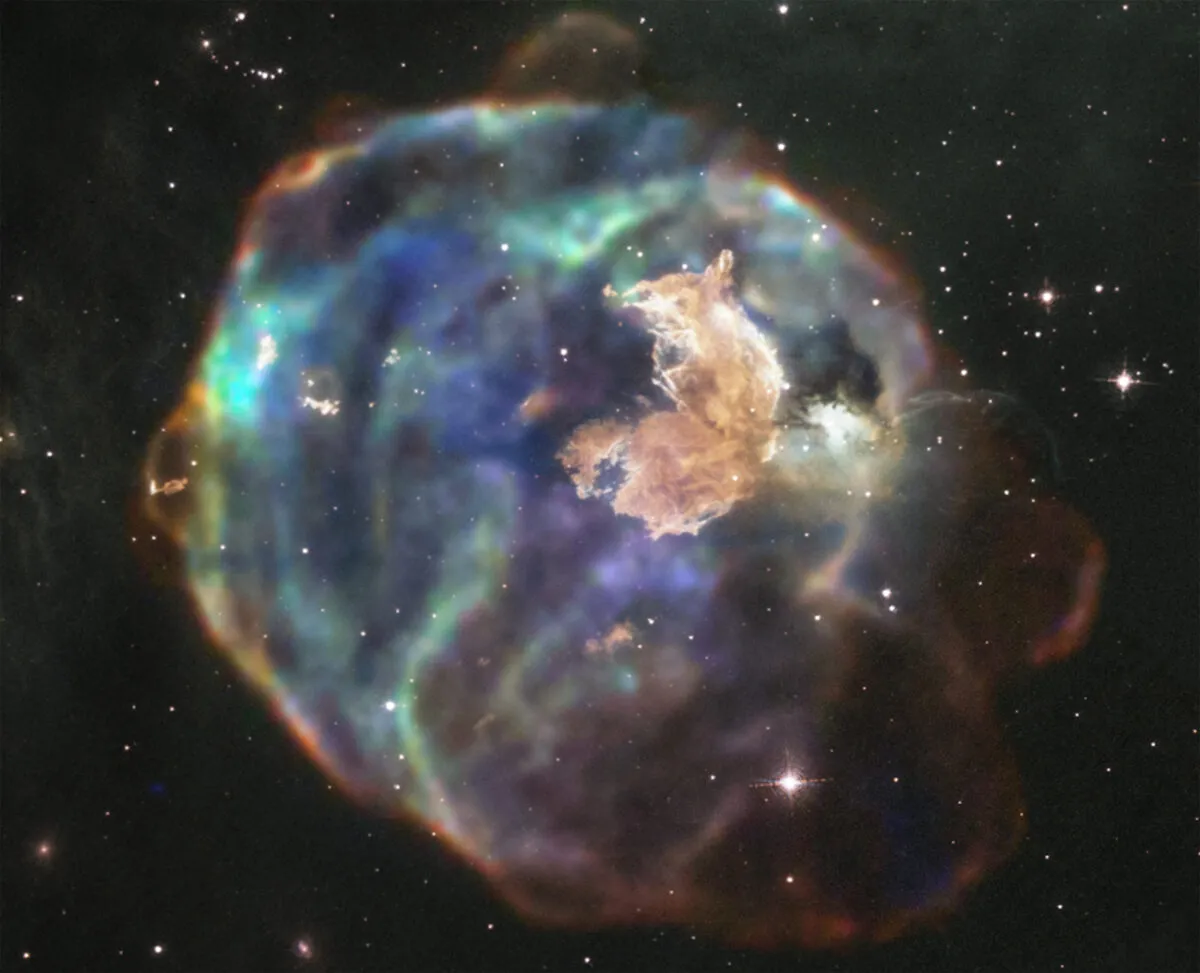
The remnants of an exploded star appear in high definition, captured by two observatories orbiting our planet.
The Chandra X-ray Observatory captured X-ray data and the Hubble Space Telescope observed optical light to produce a composite image of this object, LMC N63A.
It is a supernova remnant: the exploded remains of a massive star.
As a massive star begins using up its fuel, it can no longer produce enough energy to withstand the gravity of its own mass, and so it collapses with such intensity that it explodes in an event known as a supernova.
This ghostly shell of the former star is now all that remains.
Image stats
- Observatories Chandra X-ray Observatory, Hubble Space Telescope
- Release date 30 October 2019
- Image credit Enhanced Image by Judy Schmidt (CC BY-NC-SA) based on images provided courtesy of NASA/CXC/SAO & NASA/STScI.)
